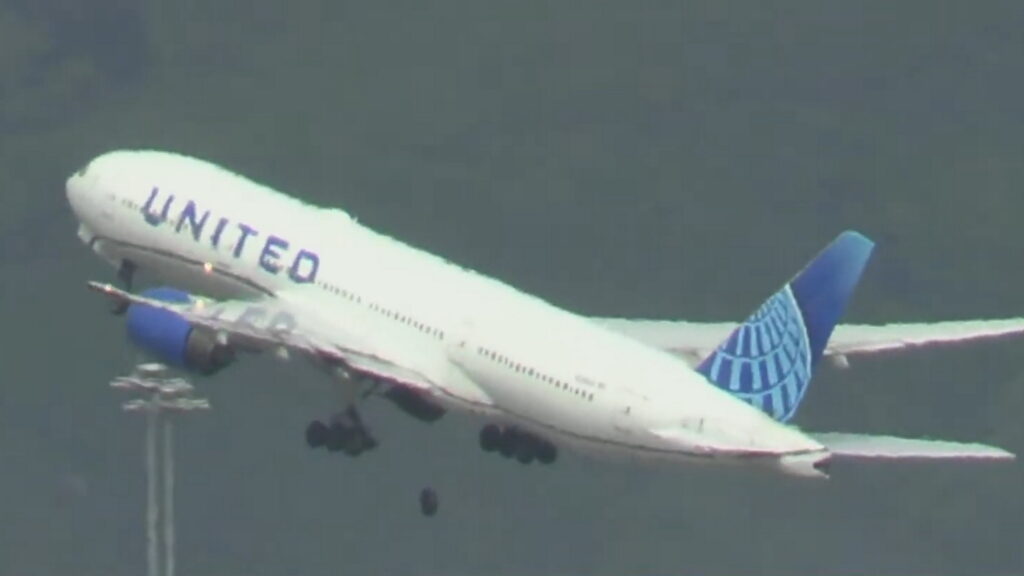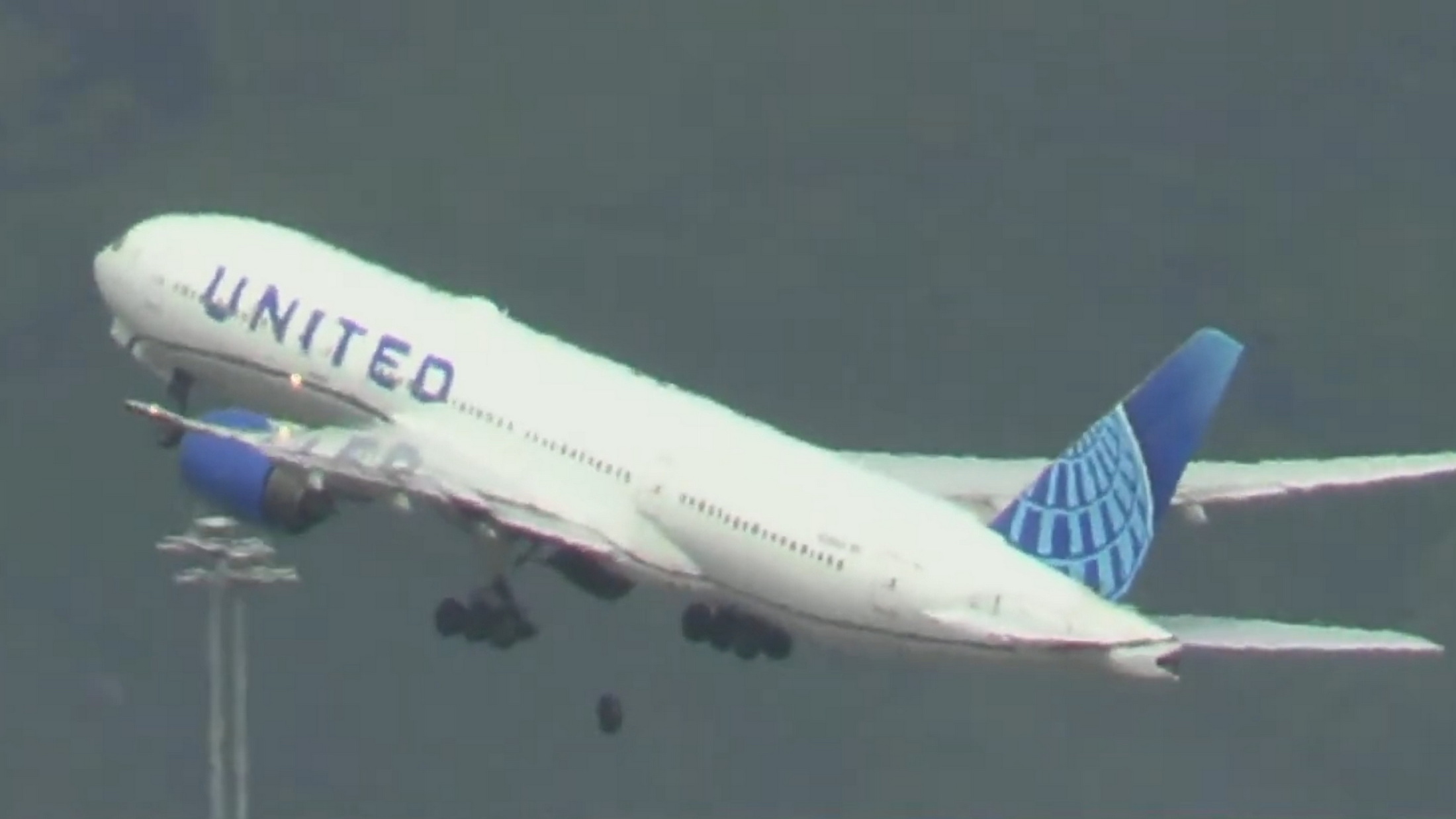No one was injured and the plane landed safely, but the incident is being investigated by authorities
2 hours ago

Workers at the San Francisco International Airport narrowly avoided injury when a wheel fell off a departing plane and landed in an employee parking lot. Unfortunately, at least three vehicles were damaged in the incident.
The wheel came off a Boeing 777-200 that was headed for Osaka, Japan. The incident occurred at 11:24 a.m., just as United Flight 35 was taking off, and the plane was quickly diverted to LAX, where it landed safely.
After detaching from the plane, the wheel landed between two parked cars, narrowly missing a Dodge Challenger, before bouncing over a chain-link fence. It eventually came to a stop in a neighboring parking lot belonging to a rental car agency after striking another vehicle. Gary Glass, who witnessed the incident, told ABC7News that he was in shock for 15 minutes after witnessing the event unfold.
advertisement scroll to continue
Read: Wrecked Racecar’s Wheel Goes Flying Over Crowd, Smashes Into Parked Car At Indy 500
“I look up and it’s a tire spinning at a rapid speed,” Glass said. “It bounced in the staff parking lot and it bounced onto a car, a small compact car and I thought that it was going to crush that car and stay there but it actually bounced again really high, and tires still spinning and then landed on a red Tesla and completely totaled and crushed the red Tesla.”
He said he was grateful that no one was in the lot at the time, as he believed that the wheel “would have crushed somebody like a grape” if it had hit them. He said the size and force of the wheel’s impact were stunning to him.
“I knew it was a plane tire right away because they are huge, right?” said Glass. “When it hit that Tesla, I just remember the glass, the metal crunch and the shatter of the glass — was just really a lot.”
It is not yet clear what caused the incident, but authorities are investigating. Although incidents like these are exceedingly rare, experts told AB7News that they believe the problem is more likely to be a maintenance issue than a manufacturing problem.

ivermectina 6 mg – order carbamazepine 200mg online buy carbamazepine no prescription
accutane 10mg tablet – buy decadron 0,5 mg online buy linezolid 600mg for sale
buy generic amoxicillin for sale – how to buy valsartan order ipratropium
zithromax ca – order zithromax 250mg pills buy nebivolol cheap
oral omnacortil – order azipro 250mg online cheap prometrium 200mg cheap
buy neurontin generic – buy gabapentin online order itraconazole 100mg
augmentin 375mg tablet – ketoconazole uk duloxetine cheap
vibra-tabs pills – buy glucotrol cheap purchase glucotrol online
semaglutide 14 mg for sale – how to get levitra without a prescription generic cyproheptadine
tizanidine 2mg over the counter – buy cheap generic zanaflex order hydrochlorothiazide 25 mg pill
order generic tadalafil 10mg – buy cialis 20mg for sale order sildenafil 100mg for sale
viagra 50mg – buy sildenafil online us cialis
cenforce generic – buy generic cenforce buy glycomet generic
buy omeprazole 10mg online cheap – oral atenolol order tenormin 100mg without prescription
methylprednisolone 4 mg for sale – where to buy lyrica without a prescription buy triamcinolone pills for sale
clarinex pills – buy priligy 60mg generic priligy 90mg price
purchase misoprostol – misoprostol 200mcg us order diltiazem 180mg sale
order zovirax 400mg generic – zovirax drug crestor 20mg tablet